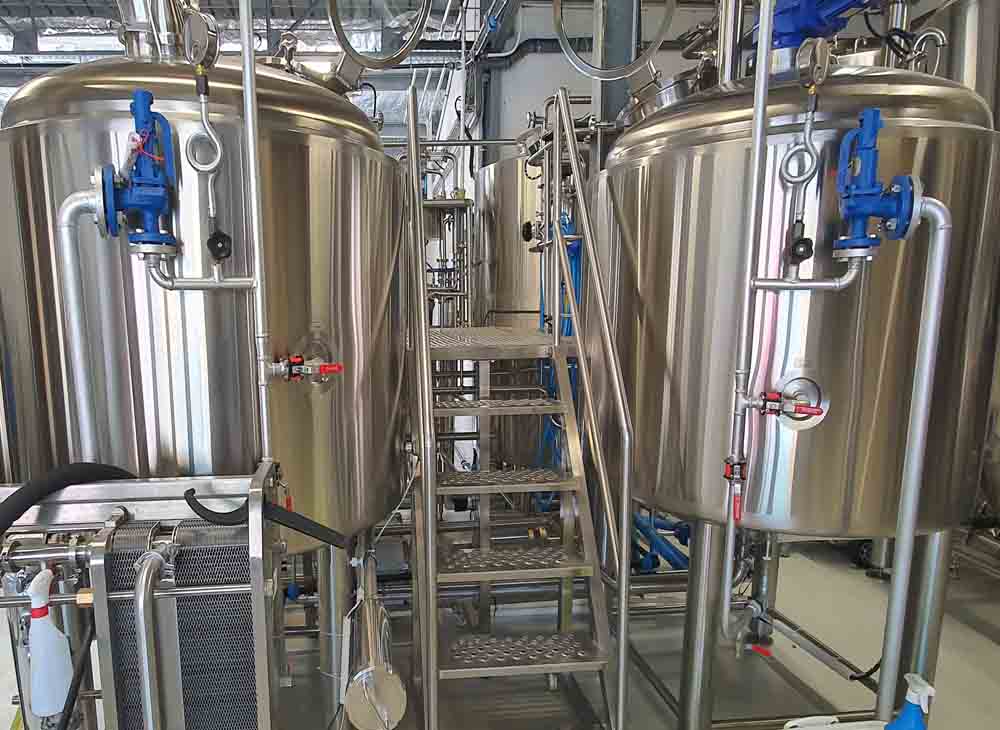Factors that effects lauter process speed
- Jun 30, 2018
- 188
- tiantai
Factors that effects lauter process speed
After mashing process is over, separating mash and wort asap is supposed. Otherwise, polyphenol consisted in mash liquid will bring bitterness to wort after long time’s soak. So, what effect lauter process speed?
1.Material quality. Wort made with well-dissolved and well-crushed malt is more easy to be lautered.
2. Mash concentration. Higher mash concentration means higher viscosity, lower wort flowing speed, which results in lower lauter speed. To avoid this, we need to control ratio of material to water in reasonable scope. First wort concentration at 16-18P is recommended.
3.Lauter temp. In higher lauter temp, wort viscosity is lower, and grain bed is soft, which means a suitable lauter speed. Then, lauter temp is usually controlled at 76-78℃. And it is also important to keep wort temp in lauter process.
4. Grain bed thickness. The reasonable grain bed thickness scope is 30-40cm. In actual operation, 45cm is also acceptable. Too heavy grain bed will lower lauter process. Too thin grain bed is not beneficial for forming clear wort.

5. Mash PH. Suitable PH for lautering is 5.5-5.8. With ph increasing, lauter speed will be lower.
6. Lauter operation. Reasonable operation in lauter process is also important for lauter speed. Such as control wort flowing speed, wort back flow time, loose grain bed, suitable sparging and so on.
Do you have any other idea about factors that effects lauter speed? Welcome to contact us for discussing further.
Edited by Nicole
Sales manager of Tiantai company
Email: [email protected]
After mashing process is over, separating mash and wort asap is supposed. Otherwise, polyphenol consisted in mash liquid will bring bitterness to wort after long time’s soak. So, what effect lauter process speed?
1.Material quality. Wort made with well-dissolved and well-crushed malt is more easy to be lautered.
2. Mash concentration. Higher mash concentration means higher viscosity, lower wort flowing speed, which results in lower lauter speed. To avoid this, we need to control ratio of material to water in reasonable scope. First wort concentration at 16-18P is recommended.
3.Lauter temp. In higher lauter temp, wort viscosity is lower, and grain bed is soft, which means a suitable lauter speed. Then, lauter temp is usually controlled at 76-78℃. And it is also important to keep wort temp in lauter process.
4. Grain bed thickness. The reasonable grain bed thickness scope is 30-40cm. In actual operation, 45cm is also acceptable. Too heavy grain bed will lower lauter process. Too thin grain bed is not beneficial for forming clear wort.

5. Mash PH. Suitable PH for lautering is 5.5-5.8. With ph increasing, lauter speed will be lower.
6. Lauter operation. Reasonable operation in lauter process is also important for lauter speed. Such as control wort flowing speed, wort back flow time, loose grain bed, suitable sparging and so on.
Do you have any other idea about factors that effects lauter speed? Welcome to contact us for discussing further.
Edited by Nicole
Sales manager of Tiantai company
Email: [email protected]




